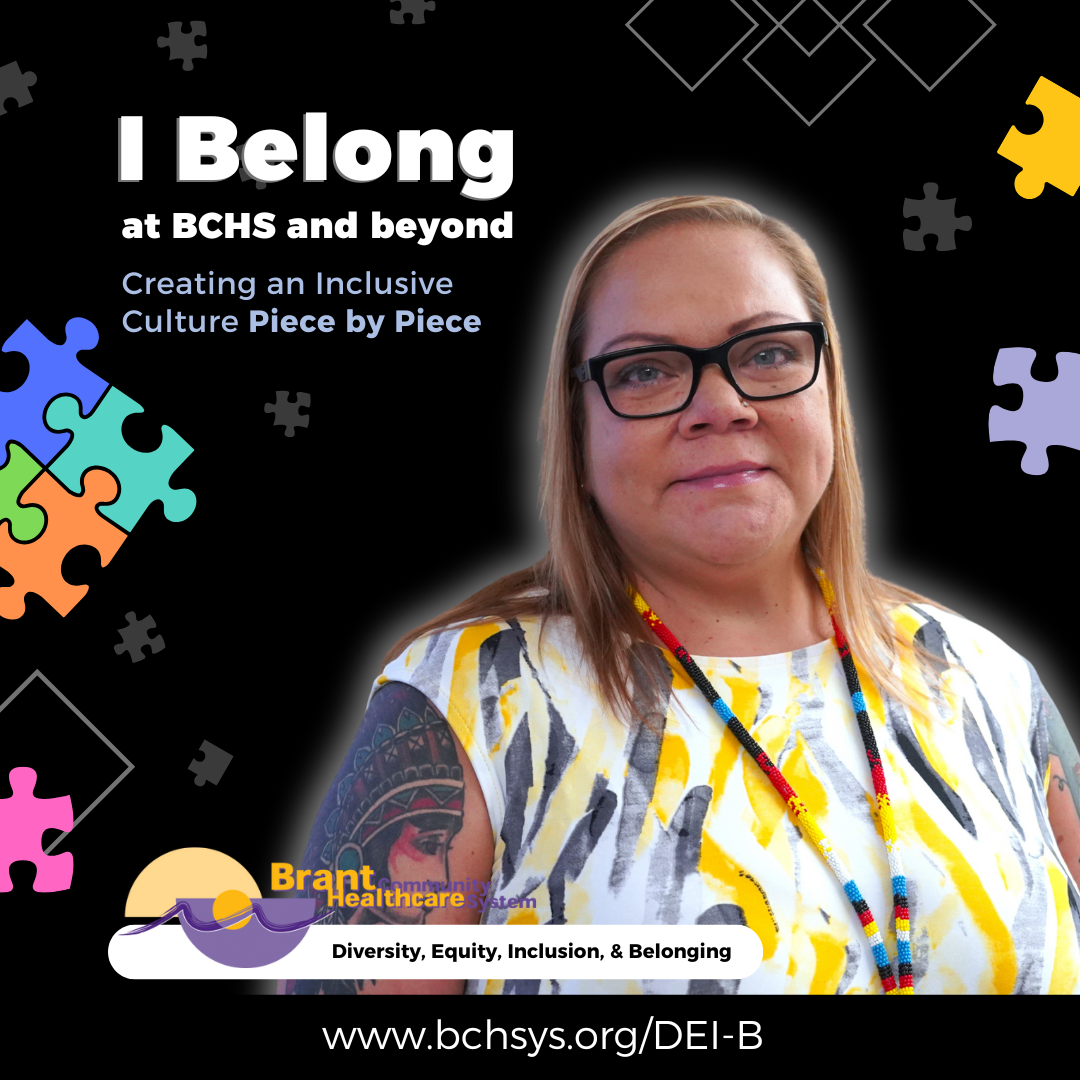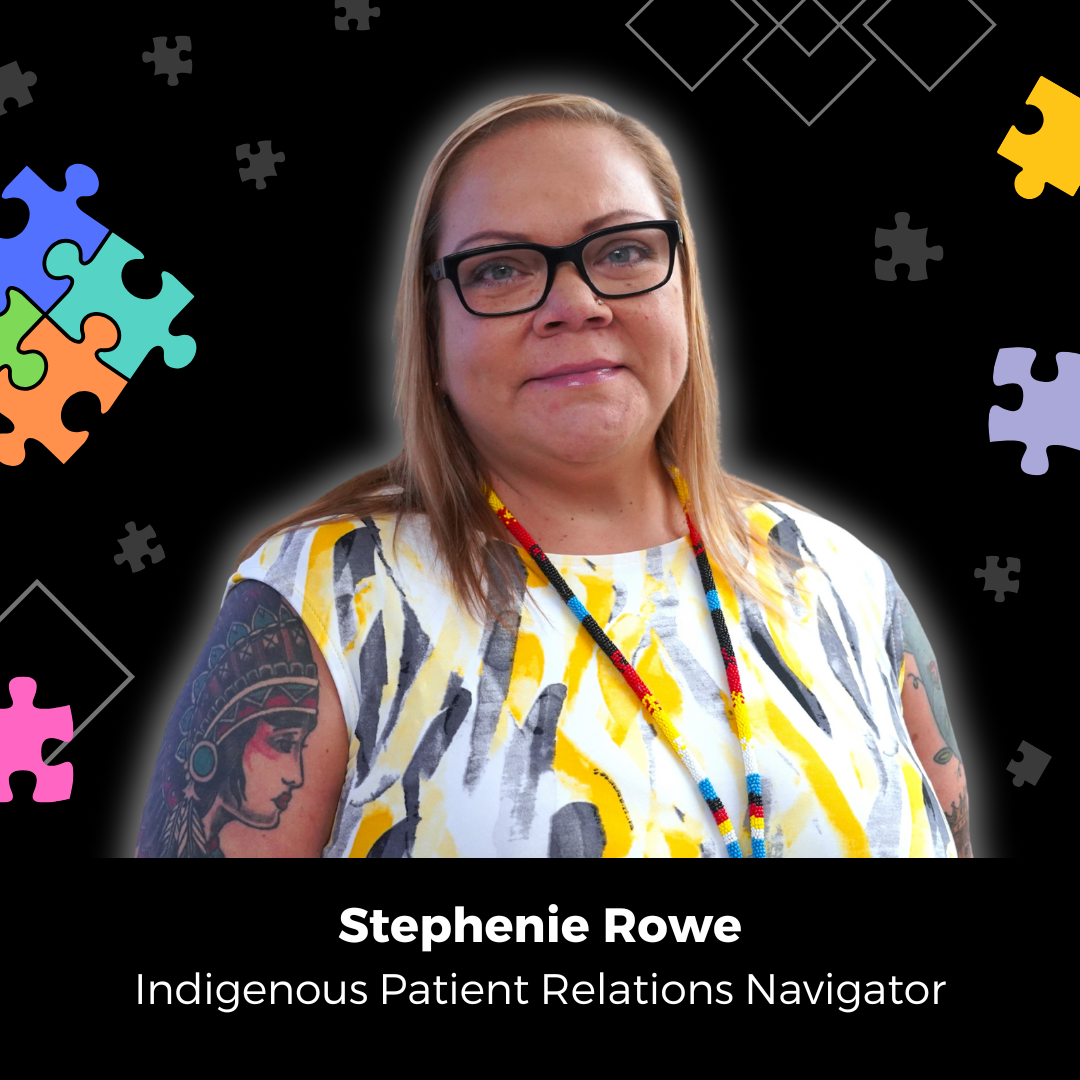Stephenie Rowe: Compassion in Action

 From Family Roots to Community Ties
From Family Roots to Community Ties
If you pass Stephenie Rowe in the hallways at Brant Community Healthcare System (BCHS), you are likely to get more than a smile. She might stop and ask how your day is going, and if she senses it, offer one of her signature hugs. For Stephenie, these small exchanges are not just gestures, they are part of the work.
Wanting to be close to family, Stephenie followed her daughter, son-in-law, and grandchild to this community and eventually found herself at BCHS. "Family is everything to me," she says. "Being here means I get to be part of their daily lives, not just the special occasions."
As a proud Indigenous woman, Stephenie approaches health care with values that reflect her culture: respect, relationships, and care for the whole person. She sees health as more than physical treatment. It’s also about supporting spiritual, emotional, and community well-being. Finding these connections makes every act of care feel personal and deepens her sense of purpose. With a career centered around community connection, Stephenie is used to adopting a people-first approach. When she meets a patient, she sees beyond their chart and recognizes them as someone’s parent, sibling, or grandparent.
At home, she shares her space with two rescue cats, Mr. Bojangles and Miss Lola Jane. "They are spoiled, but they have been through a lot before they came to me,” she shares. “They deserve love and comfort. We all do."
Changing the Model of Care
At BCHS, Stephenie is working to create a culture of compassion through her work as Indigenous Patient Relations Navigator. This means shifting from a transactional approach to one that goes beyond connecting people with medical treatment, but also to housing, food, cultural supports, and community resources.
The work is filled with moments of joy, such as helping someone reconnect with family after years apart or accessing traditional medicines they thought were out of reach. It also comes with challenges, from confronting systemic barriers to holding space for grief and trauma.
"It is not always easy," Stephenie says. "Sometimes you cannot fix everything. But you can walk beside people. You can listen. You can make sure they know they matter."
Known for her ability to make people feel seen, colleagues often describe her as someone who lightens the mood simply by walking into a room. She is quick to offer support, whether that means covering a shift, actively listening, or sharing words of encouragement.
For Stephenie, belonging is built through kindness, presence, and consistent action.
"Belonging is knowing you are seen. It’s when someone remembers your name, asks about your family, or takes the time to hear what is really going on for you. It is feeling safe to be yourself without judgment."
She believes that belonging cannot be achieved through policies alone. It is built in quiet conversations between appointments, in shared laughter over a fond memory, and in her ability to give her full presence to whoever is in front of her. “It comes from genuine trust, care, respect, and a willingness to show up for each other every day,” she says.
The Indigenous Health Team’s vision, and Stephenie’s personal commitment, point toward a future where healthcare is not only clinically excellent but also deeply human.
"We have had so much support from people at BCHS, but there is still a long way to go. Change takes time, and it takes all of us."
This feature is part of the “I Belong” campaign, where BCHS employees, professional staff, and volunteers are given the opportunity to share their personal stories, strengthening a culture of belonging that empowers each individual and deepens our collective mission to provide exceptional care. Together, we’re creating a more inclusive, connected, and empowered BCHS.





